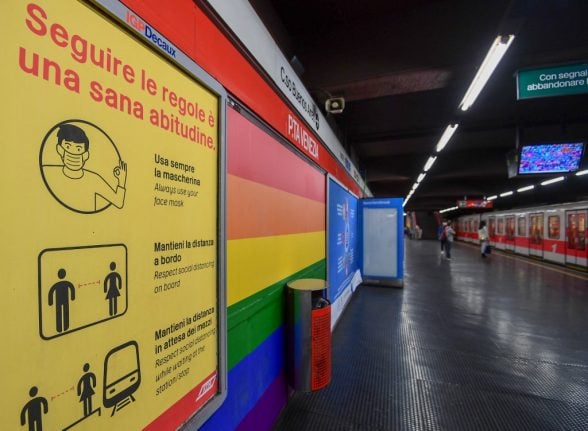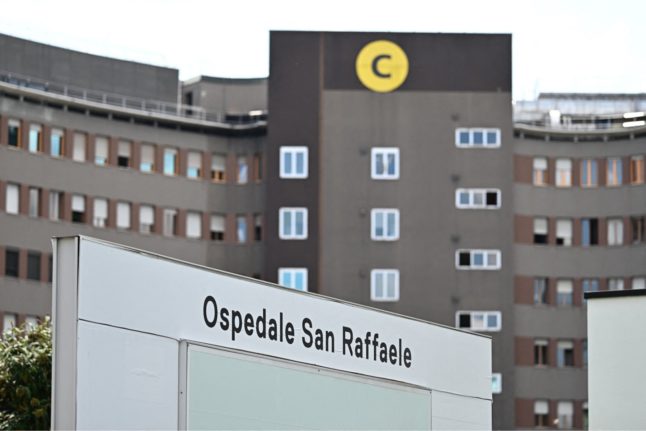Traces of the virus were detected in skin cells from a 25-year-old woman who had a biopsy for an unusual skin condition on November 10th 2019, according to Raffaele Gianotti, a researcher in dermatology at the University of Milan, who believes she could be “the dermatological Italian patient zero”.
At the time the woman reported having a mild sore throat, and months later tested positive for Covid-19 antibodies in her blood.
Previously the first confirmed Covid-19 patient in Italy was a child in Milan, who was swabbed after developing a measles-like rash in early December 2019 – two months before it became clear that the virus was circulating in the nearby town of Codogno, where 'native' cases were first detected in mid-February.
READ ALSO: Coronavirus was already in Italy by December, waste water study shows
Gianotti and a team from the European Institute of Oncology (IEO) and the Italian Diagnostic Centre analysed skin samples taken in the autumn of 2019 to investigate whether any of the patients who reported unexplained skin conditions might in fact have been showing symptoms of Covid-19.
Their study, to be published in the British Journal of Dermatology, found molecular traces of the SARS-CoV-2 virus in the biopsy taken from areas of reddened skin on the Milan woman's arms, which fitted a pattern seen in other Covid-19 patients. The virus can cause skin disorders including rashes and discolouration of fingers or toes, though they are less common than the 'classic' symptoms (fever, tiredness and a dry cough).
The woman, who had no other symptoms apart from a sore throat and was not tested for coronavirus at the time, reported that her rash disappeared by April 2020 and she tested positive for antibodies in June.
“All these facts lead us to believe that our patient could represent the oldest case in literature of
detection of the virus on tissue sample,” the researchers write.
They do not believe that she was the first person in Italy to contract the new coronavirus, however: “Probably, continuing to search, we would also find [the virus] in samples from October 2019”, Gianotti told Ansa news agency.
A separate study found traces of SARS-CoV-2 in samples of waste water in Milan and Turin from December 2019, though not from October or November.
Meanwhile more than 100 people who enrolled in a lung cancer screening trial between September 2019 and March 2020 were discovered to have antibodies in their blood, indicating that they had already been exposed to the virus without noticing symptoms. A handful of people had developed antibodies as early as the first week of September 2019, recent research found.



 Please whitelist us to continue reading.
Please whitelist us to continue reading.
Member comments